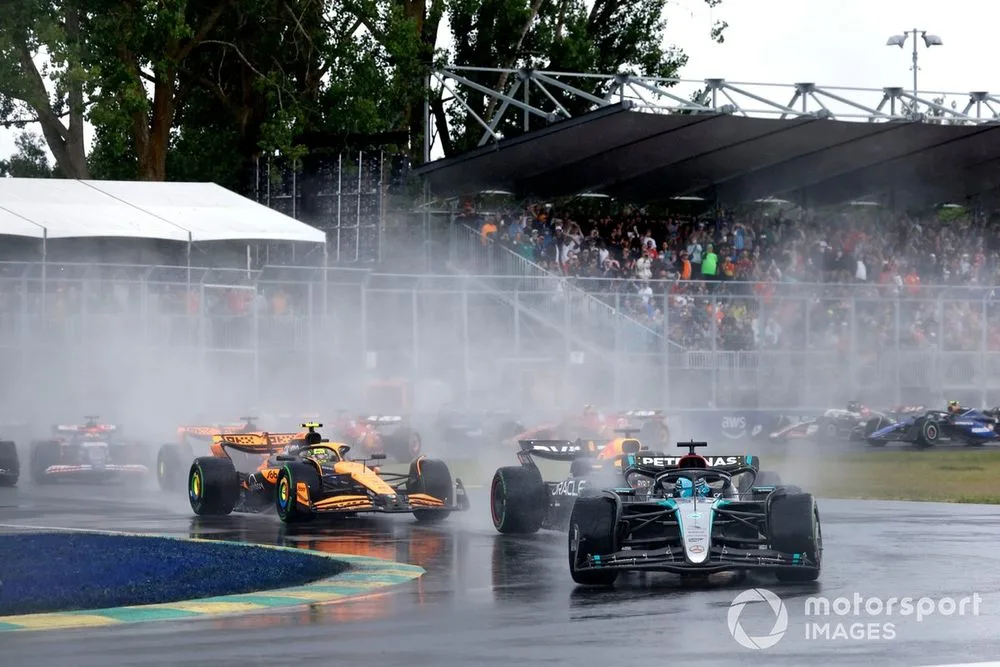With the FIA having taken teams by surprise last week in revealing details of what has been laid out for F1’s next rules revolution, the state of the draft rules caused some unease in the Montreal paddock.
Amid a consensus that the performance of the cars falls short of what F1 needs – with the current ideas making them too fast on the straights and too slow in the corners – revisions are now on their way.
Indeed, the FIA’s single-seater director Nikolas Tombazis told both the media and teams during separate gatherings on Saturday that the draft rules were set to be altered.
“We are not in the final set of regulations yet and we do have quite a few things that we need to find and discuss with the teams,” he said.
“We are equally conscious of some of the concerns regarding downforce with the cars or straightline speed, and these are things that we class as refinements that still need to take place.”
The path to finalising the modified rules is interesting because it will be taking place under governance that requires formal support from teams.
Up until now, the FIA has had the right to sort out the regulations alone as the International Sporting Code means that rules do not need to be approved by the competitors within 18 months of them coming into force.
George Russell, Mercedes F1 W15, Max Verstappen, Red Bull Racing RB20, Lando Norris, McLaren MCL38, Oscar Piastri, McLaren MCL38, the rest of the field at the start
Photo by: Glenn Dunbar / Motorsport Images
In fact, with a June 30 deadline to lay down the 2026 rules, while the FIA has consulted teams on ideas and asked for feedback, it has not required any backing from them over what was being put down in the rule book.
That all changes on July 1 when the rules will then fall under the jurisdiction of the Concorde Agreement – which requires that any modifications from that point will require support from the F1 Commission.
It is a scenario that could potentially make altering some things more time-consuming, as the process means discussions will have to go through the formal routes of the Technical Advisory Committee and referred up to the F1 Commission.
There a majority of support will be enough to see through any alterations. But, in the world of F1, nothing is ever guaranteed so there could be unexpected roadblocks in achieving some tweaks.
The prospect of things potentially being more complicated to solve from July 1 prompted some thought recently that…
Click Here to Read the Full Original Article at Autosport.com – Formula 1 – Stories…

